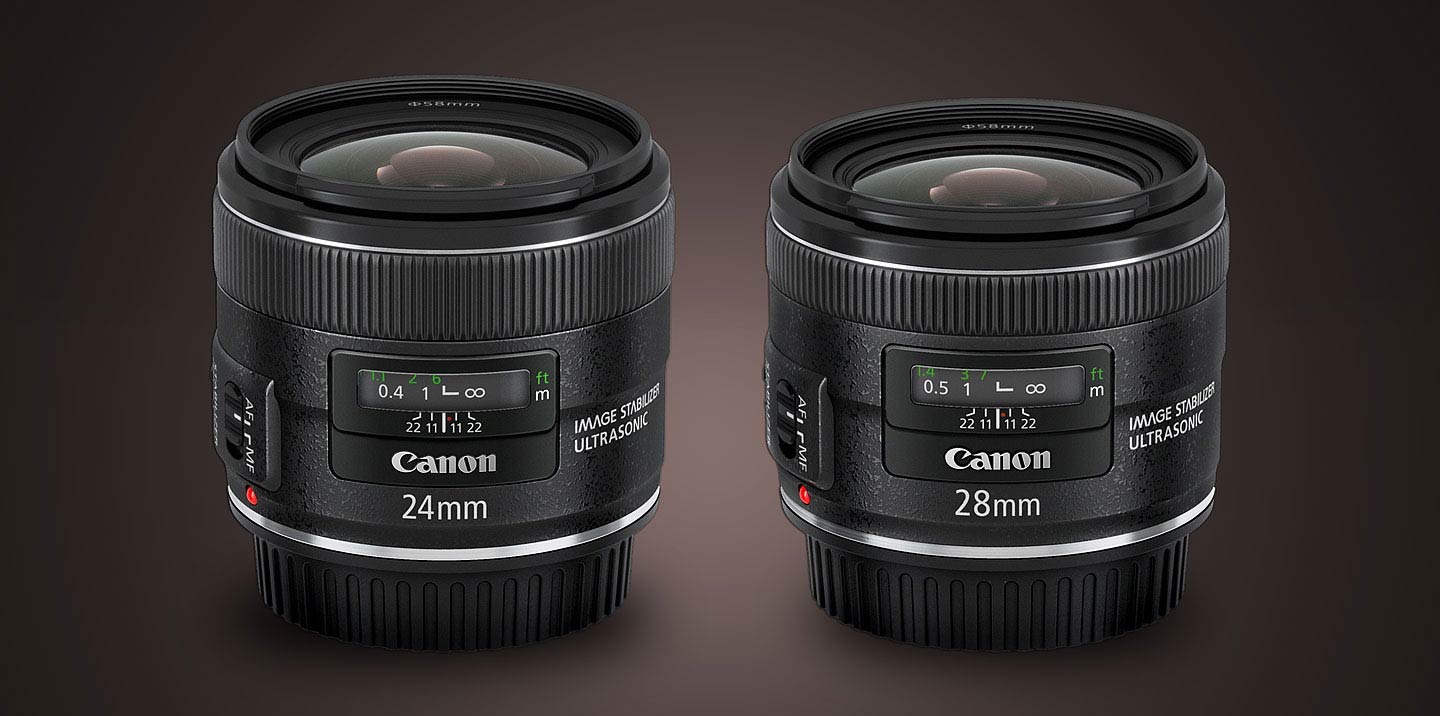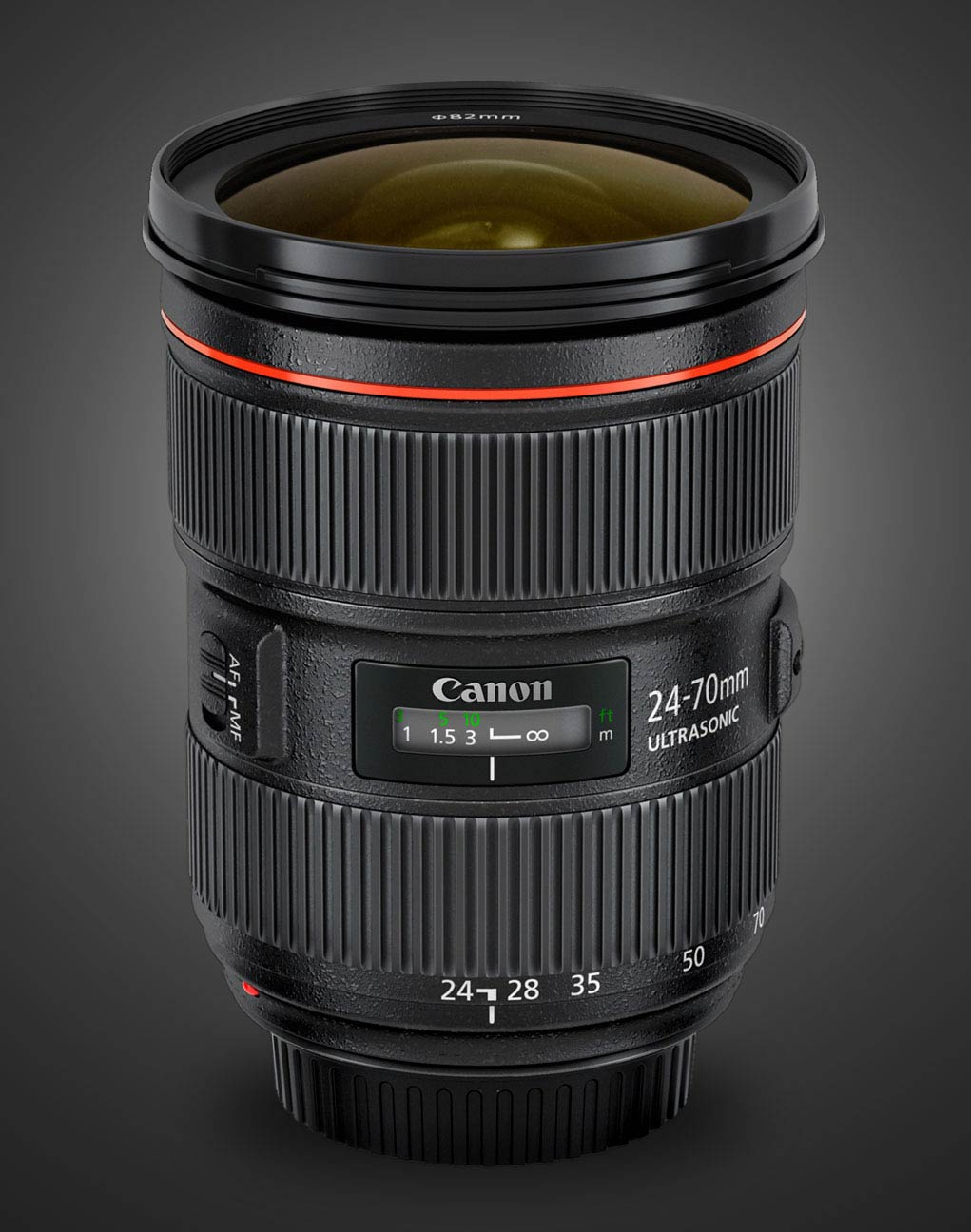The 24-70 f/2.8L II USM, Canon’s long awaited update to the 24-70 f/2.8L was finally announced this morning. For two years, Canon’s 70-200 f/2.8L IS II has offered unrivaled performance for demanding photographers, but the 24-70 counterpart wasn’t able to live up to its optical standards. The Mark II version of the lens, however, promises to meet to the challenge by providing superior optics for edge-to-edge sharpness throughout the zoom range, enclosed in a rugged, weather-sealed housing.
In addition to two UD lens elements, a new Super UD element is the key to the improved optical performance of the Mark II. The lens now contains a total of 18 elements in 13 group (vs 16 elements in the original). Like Tamron’s new 24-70 f/2.8 (announced yesterday), the new Canon has a larger diameter than the previous model, requiring 82mm filters rather than 77mm, and like the Tamron, the Mark II is shorter than the original, down to 4.4 from 4.9 inches.
Unfortunately, the price of this new beauty may have many of us wishing for Tamron pricing. The estimated street price of the Canon 24-70 f/2.8L II USM is : $2,299
Indeed, Canon seems to have decided that price is no object for their customers. The new build quality and optics of the new 24 and 28mm f/2.8 IS lenses appear to be better than ever, as we’d expect. However, their estimated prices, when they become available in June, are $800 and $850, respectively. I can’t help but feel that Canon is expecting an awful lot for their new babies, considering that Canon has had high-quality, auto-focus 24 and 28mm lens designs in their line-up since 1988. Canon might as well introduce a 50mm f/1.8 III for $400.
In the release information for these two lenses, Canon does make a note that may offer an explanation of sorts. They claim, “The silent and smooth operation of each lens makes them ideal choices for shooting video as well. ” Of course, at the moment, Canon’s SLR line-up has the worst auto-focus system for video of any of the major players… and indeed, I don’t know anyone who relies on AF while shooting video on their Canon SLR. Perhaps this means that Canon is working on improving their AF system for video, but it may also mean that Canon is simply taking a pricing cue from their Cinema System partners (24mm lens = $6800).




